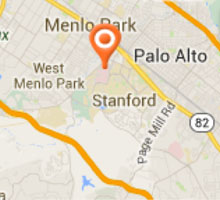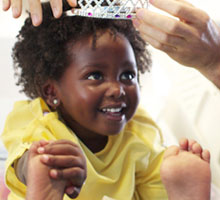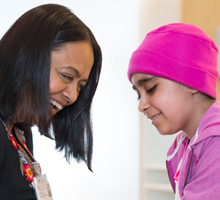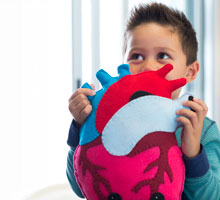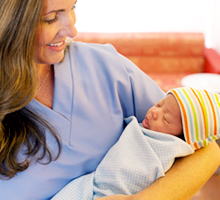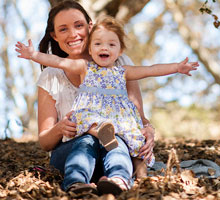Innovation & Research
Our neonatologists are also faculty members at the Stanford University School of Medicine. As faculty, they perform research to ultimately improve outcomes for newborn babies. Our physician-scientists look for ways to treat neonatal problems—or to prevent them completely—using the least invasive and least traumatic methods to give your baby the best chance to lead a healthy life.
Stanford Children's Health is involved in large, national research studies. We are one of 14 large academic medical center nurseries across the United States that participates in Neonatal Network NICHD (National Institute for Child Health and Human Development) clinical trials.
Some of our research and the resulting patient care innovations are listed below:
Correcting Gastroschisis without Surgery
Gastroschisis is a defect in which the bowel, stomach and liver push through an opening in the wall of the abdomen. Our neonatologists work with Lucile Packard Children’s Hospital Stanford Pediatric General Surgeons to correct gastroschisis without surgery. Read more about the treatment.
Reducing Necrotizing Enterocolitis (NEC)
We have reduced the numbers of babies who develop necrotizing enterocolitis (NEC) in our nurseries by standardizing how we feed very small babies. Our neonatologists developed new feeding guidelines that involve gradual, systematic increases in feeds. This increased babies’ tolerance for feeding and provided optimal nutrition.
Patent Ductus Arteriosis (PDA) Closure
A patent ductus arteriosis (PDA) in a premature baby often does not close on schedule. Past treatments involved surgery or medication to close the heart vessel. Our team’s research has shown that neither of these treatments may be necessary. Now, care teams can focus on supporting the baby until the PDA closes on its own.
Treating Brain Injury from Lack of Oxygen at Birth
We participated in a Neonatal Network NICHD clinical trial for babies with brain injuries caused by a lack of oxygen during birth. Wrapping the baby with a cooling blanket within six hours after birth proved to be successful in reducing the risk of brain injury. Since we participated in the clinical trial, we immediately started using this new, proven treatment on babies seen in our nurseries.
Retinopathy of Prematurity
Our colleagues in Pediatric Ophthalmology have developed a network for diagnosing premature babies for retinopathy of prematurity (ROP). The network helps physicians to diagnose ROP in its early stages, which is vital to successful treatment and preventing blindness.
Learn More
Please visit the Division of Neonatal and Developmental Medicine’s Stanford University School of Medicine to learn more about neonatal research.





